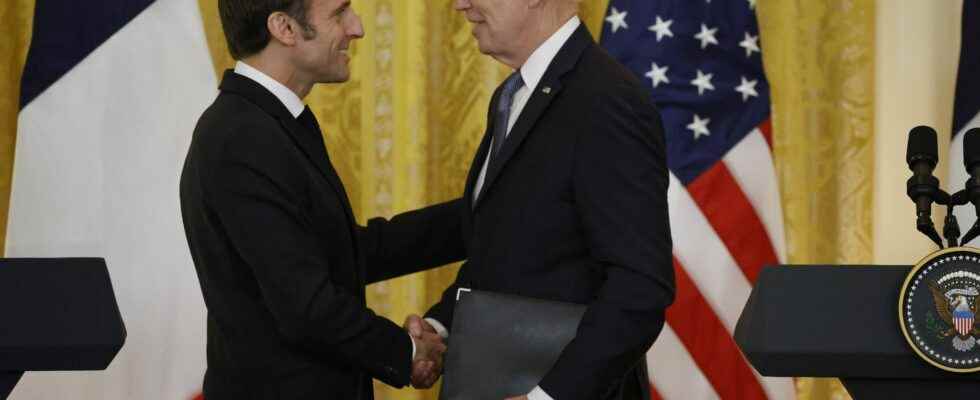On December 9, the World Trade Organization released a report condemning customs duties imposed by the United States on certain Chinese imports. On the same day, Adam Hodge, Biden’s trade representative, announced that his country would take no account of these findings. This statement, little commented on, is nevertheless fraught with consequences: the United States is today unraveling the institutions of international trade that they themselves had helped to create after 1945.
To understand the skirmish between the WTO and the Biden administration, we have to go back to March 2018. The report of the world trade policeman indeed concerns extraordinary tariffs imposed by Donald Trump on imports of steel and aluminum at the start of its trade war against China. If Europe and Canada are quickly exempted, Chinese imports remain overtaxed. As early as 2018, China seized the WTO, arguing that American policy violates the Gatt agreement of 1947.
Under the most-favoured-nation clause, this agreement provides that each member state benefits from the same commercial advantages as any other. The Trump administration defends its policy by asserting an exception provided for in the same agreement, authorizing each country to “take any measures it deems necessary to protect its essential security interests”. To decide, the WTO dispute settlement body sets up a panel made up of third countries.
International trade under threat
After several years of work, the report published by the WTO in early December considers that essential American interests are not at stake, and rightly so. On the contrary, the American answer is full of bad faith: Hodge affirms that the United States are the only judges of the subjects which concern their security, and that the WTO does not have to come to a conclusion about this appreciation. But international agreements and the decisions rendered by the bodies responsible for enforcing them are worthless if it suffices for a signatory country to invoke its security as soon as it wishes to derogate from them!
Thus, the American position undermines the authority of the WTO and creates a precedent that is all the more dangerous since the United States has long presented itself as the first defenders of the liberal world order. However, without a guarantee of application of the law, international trade, riskier and more costly, is itself threatened. Since Trump, Republicans have returned to a nationalist policy, elevating American interests above all other considerations. We can only worry to see the Democrats take the same path.
coincidence of the calendar, the European Union has just adopted a text seemingly just as protectionist. On December 13, the Europeans agreed to impose customs duties on imports of CO2-emitting products such as… aluminum and steel. Same sectors, same policy? No, because the new law does not target a single country, and its justification is radically different. Of course, European countries seek to protect their industry against foreign competition. But they are right to denounce this competition as unfair. Since the establishment of a European carbon market in 2005, European companies emitting CO2 must buy rights to pollute proportional to their emissions, which amounts to paying a carbon tax. This policy aims to fight against global warming, but it paradoxically benefits companies exporting to Europe from countries without a carbon price.
Rights to pollute
The new law restores fair competition, since these foreign exporters will now also have to buy pollution rights. It should also encourage the adoption of ambitious environmental policies. In Europe, it should calm opposition to the carbon market. Abroad, it should encourage other countries to charge for CO2 emissions: in doing so, they will exempt their companies from European tariffs and will themselves benefit from revenues collected if not by Europeans.
The EU was one of the members of the WTO panel judging the dispute between the United States and China. It should continue to demand that Americans reconsider their pricing policy, while encouraging them to adopt border adjustments for carbon as well – and, in doing so, put themselves on the right side of history.
